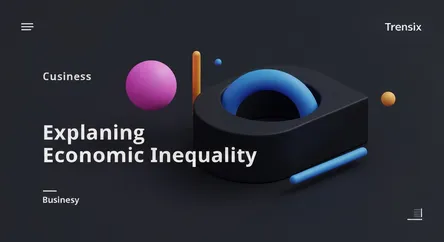Business
Explaining Economic Inequality

Discover the meaning of economic inequality, the vast disparity in wealth and income distribution, and its profound impact on societies worldwide.
What is it?
Economic inequality refers to the unequal distribution of income, wealth, and opportunity among individuals or groups within a society. It is often described as the gap between the rich and the poor. This disparity isn't just about wages; it also encompasses the total value of assets like property, stocks, and savings. Essentially, it highlights how economic resources are concentrated in the hands of a small percentage of the population, while the majority holds significantly less.
Why is it trending?
This topic is gaining traction due to several factors. Globalization and technological advancements have often benefited high-skilled workers and capital owners more than low-skilled labor. Policy shifts, including changes in taxation and reduced social safety nets, have also contributed. Furthermore, high-profile reports from organizations like the World Bank and Oxfam frequently publish data that starkly illustrates the widening gap, fueling public debate and political discourse on fairness and economic justice.
How does it affect people?
Economic inequality has far-reaching consequences. It can limit social mobility, making it harder for those in lower-income brackets to improve their economic standing. This affects access to quality education, healthcare, and housing, creating cycles of poverty. On a broader scale, high inequality can lead to social unrest, political instability, and slower overall economic growth, as it can dampen consumer demand and concentrate political power.